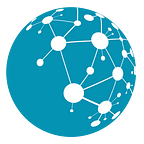Empowering Positive Change: Building a Culture of Data Governance
Terre des hommes Foundation’s Data Practice Accelerator project within the 2023 Data Governance cohort is focused on reducing silos and organizational inefficiencies by improving data governance, system consolidation, ethics advancement, and process compliance to further their work in improving the lives of children worldwide.
By Terre des hommes Foundation
In recent years, non-governmental organizations (NGOs) have faced increasingly challenging data threats and constraints that demand our utmost attention. Within our environment and humanitarian context, NGOs — like Terre des hommes (Tdh) — must find ways to address data privacy requirements, data breaches, possible conflicts between project stakeholders over data access and ethical requirements, the complexity of regulatory and legal landscapes, emerging issues of data sovereignty. Furthermore, the impact of the Fourth Industrial Revolution, such as mobile, cloud, geolocation, IoT, and cyber security, must also be considered.
Through our Global Strategy 2021–2024, Tdh commits to becoming a data-driven organization, recognizing the critical role of data governance principles in achieving its ambition. Our strategy emphasizes the need for standardized working methods, tools, and advanced analytical skills to support a cultural shift toward data-driven decision-making.
Tdh acknowledges its current need to reinforce its data governance by establishing clustered data practices, clarifying its frameworks, and building an implementation roadmap. To this end, we also recognize the need for early-stage data protection tools, such as data processing impact assessments, data sharing agreements, and a registry for personal data processing. Moreover, data literary schisms, which encompass definitions, rules, expectations, and staff’s data capacity, must be addressed equally.
To tackle these challenges, using resources from PJMF’s Data Practice 2023 Data Governance Accelerator cohort and recognizing the importance of effective project management, our team conducted internal stakeholder interviews to identify the most suitable use case for the data warehouse prototyping project. Based on users’ feedback, the team focused on a crucial use case — the Budget Matrix workflow. This complex workflow involves financial data processing between 30+ delegations and headquarters departments. Leveraging cloud-based data tools, like Azure Databricks and Data Build Tool (dbt), Tdh aims to streamline the workflow, improving efficiency, user experience, and data security.
The existing budget creation tool will be transformed and improved by integrating it into a cloud-based data system. The proposed workflow includes tools such as Azure Databricks, dbt, Terraform, and more, providing a centralized and efficient solution.
The transition to a cloud-based integrated data system brings numerous benefits. Firstly, it improves efficiency by streamlining the data process and reducing potential errors in Excel files. Secondly, leveraging technologies like Azure Databricks and dbt enables the automation of manual tasks, enhancing productivity and minimizing the risk of mistakes. The integrated data system ensures clear data lineage, prompting transparency and facilitating comprehensive documentation of the budget process. In terms of user experience and security, the transition offers secured and fully integrated authentication through Azure Active Directory. Furthermore, the browser-based solution eliminates computer freezing issues experienced with Excel-based tools, while the reduced processing time transforms tasks from minutes or hours to mere seconds.
Once the grant was awarded, and as part of our preparations, we developed a RACI matrix, which was crucial in facilitating the onboarding process of the Head of ICT4D & Data Sciences and the data engineer. With the core team onboarded, we established a shared vision for the project through various activities. The RACI matrix helped clearly define roles and responsibilities, ensuring a smooth transition and effective integration of the new team members into the project.
Our team greatly benefited from the technical syncs with the Patrick J. McGovern Foundation (PJMF) Data Practice Team and implementation partners Data Elevates and the Aapti Institute. Through the learning workshops, they provided us with valuable tools, templates, and expertise to explore our data flows, assess risks, and identify critical roles. The tools they provided played a crucial role in our data exploration phase. We used these resources to analyse our existing data landscape, identify potential bottlenecks, and gain insights into data flows across different departments.
Their evaluation and feedback on our selected technologies helped us validate our technological choices, such as Azure Databricks, dbt, Terraform, and other tools we had chosen for implementing our data warehouse.
Tdh’s data approach involves empowering staff with data governance competencies and promoting responsible data practices. Tdh deploys cyber security and data protection mandatory self-training for all staff members. Tdh contributes to the humanitarian sector by co-building open-access resources such as the SurveyCTO Toolbox, the Responsible Data Management Toolbox, and the Qualitative Data Analysis Toolbox, which strengthen staff data collection and analysis skills. These initiatives and broader data governance efforts demonstrate our commitment to enhancing data literacy and promoting responsible data practices. Additionally, Tdh identifies Data Protection Focal Points in its delegations worldwide, who serve as crucial personnel overseeing responsible and ethical data management in their respective locations. To further support them in their roles, Tdh plans to conduct training sessions in collaboration with other NGOs in the coming fall, focusing on responsible data management practices. Combined with our comprehensive staff training and open-access resources, these sessions aim to enhance data governance capabilities, promote secure and ethical data handling, and foster a culture of responsible data practices throughout the organization.
In conclusion, Tdh’s data-driven journey showcases the importance of strong data governance principles. By addressing challenges, adopting modern data tools, and empowering its staff, Tdh is well-equipped to drive positive change for its organization and the communities it serves.
